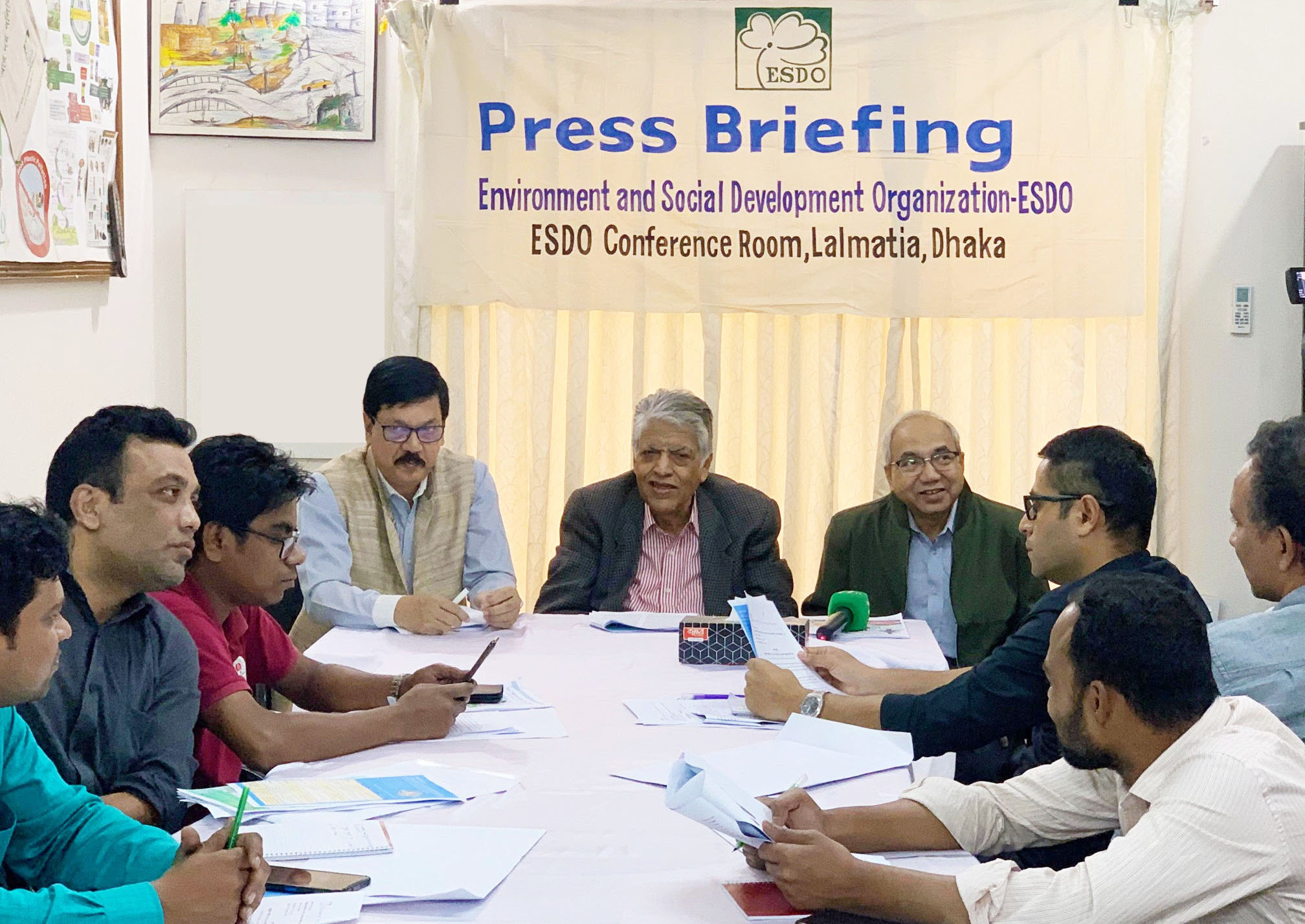Media Briefing and Report Launching of “Visual Pollution in the City of Dhaka: A Public Health, Environment and Traffic Distraction

Environment and Social Development Organization (ESDO) recently launched its new study report entitled “Visual Pollution in the City of Dhaka: A Public Health, Environment and Traffic Distraction” through a media briefing. Visual pollution is a major cause of vision and mental health problems. Every year, an estimated 270,000 children in Dhaka suffer from eye fatigue and severe headaches due to this visual pollution. This information was revealed in ESDO’s new study report.
ESDO’s study has found that visual pollution causes more than 24% of people to suffer from eye fatigue among which children are the worse sufferers. Each year approximately 270,000 children in Dhaka city receive treatment for suffering from eye strain and severe headaches, based on data compiled from 27 hospitals and clinics in the city of Dhaka. Furthermore, the residents of Dhaka city who are suffering from mental illness have reached nearly 17%.
The study showed that the death rate due to road accidents increased by 40%, which is 8,800 people in mid-2022 as opposed to 5,227 people in 2019. Visual pollution has been identified as one of the top causes of road accidents, ranking alongside overtaking, reckless driving, and intoxicated driving. The worst-case scenario is that 95.89% of people aren’t even aware that visual pollution has been affecting their lives seriously for a very long time.
Visual pollution describes the apparent deterioration and low aesthetic quality of natural and man-made landscapes close to people. Because visual pollution disturbs both natural and man-made habitats, it interferes with a place’s ability to be useful and enjoyable while also limiting the ability of the wider ecological system, which includes both humans and animals, to grow and flourish there. Billboards, cables or irregular electric networks, wires, decaying structures, stacked-high construction materials, roadside garbage dumps, graffiti, etc. are just a few examples of the various irregular forms that are referred to as “visual pollution” and prevent people from fully appreciating a perspective or view.
Visual pollution can have far-reaching consequences. They include distraction, decreases in opinion diversity, loss of identity, traffic congestion, various types of health hazards, irritability and psychological disturbances, eye fatigue, mental illness, loss of sense of hygiene and aesthetics, a feeling of civility, and overall loss of the residing community’s quality of life. Children who have been exposed to visual pollution since childhood, are often devoid of subtle aesthetics, and they become accustomed to their unpleasant surroundings, losing their natural impulse to rectify them he added.
ESDO’s respective chairperson and former secretary of the Govt. of the People’s Republic of Bangladesh, Syed Marghub Murshed, graced the event as the session. ESDO Secretary General and Study Team Leader Dr. Shahriar Hossain and Senior Technical Advisor of ESDO and former chairman of Chemical Division, BSTI, Professor Dr. Md. Abul Hashem, were also present at the event. This media briefing was attended by media representatives from different print and online news portals.


